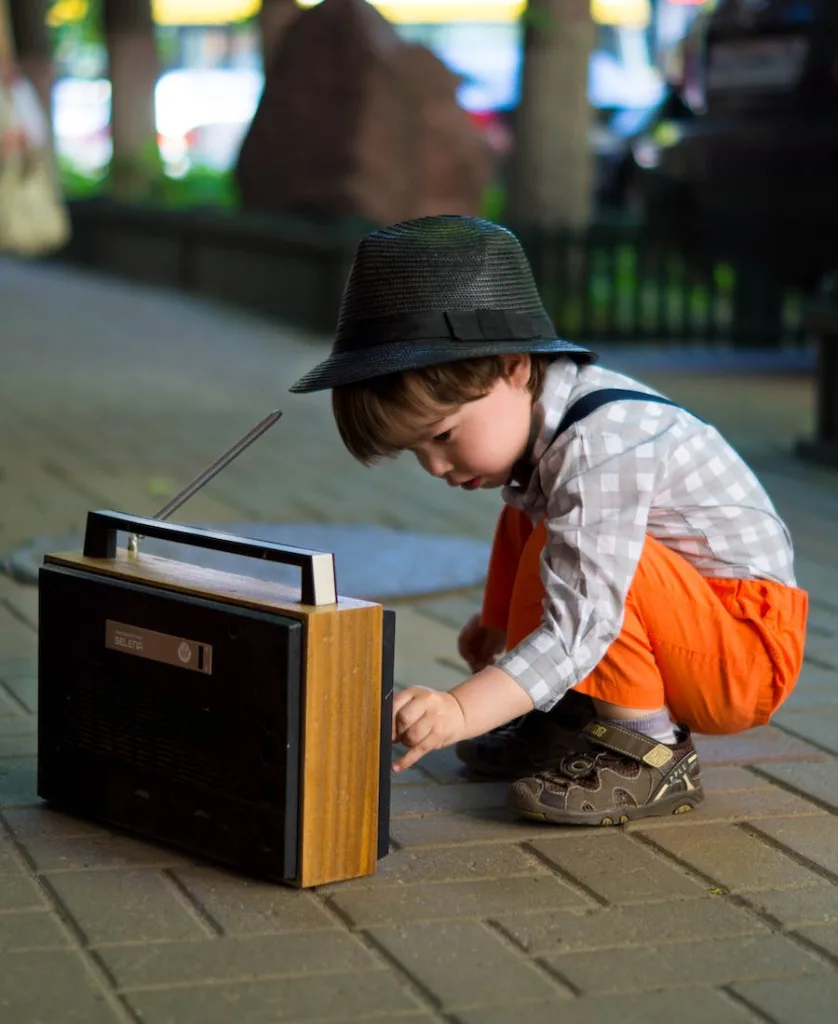The spiritual meaning of music is a topic that has fascinated scholars, musicians, and spiritualists alike, as it explores the relationship between music and spirituality.
While music has the power to evoke emotions and create a sense of unity, it is also believed to be a conduit for spiritual experiences.
Understanding the relationship between music and spirituality is crucial to appreciate the spiritual meaning of music.
Music has been used in various spiritual practices such as meditation, prayer, and ritualistic ceremonies.
It is believed that music can help one connect with the divine and facilitate spiritual awakening.
Moreover, the use of music in spiritual practices can create a sense of community and shared experience, fostering a deeper sense of spirituality.
The power of music in spiritual practices is undeniable, and its emotional impact is equally significant.
Music has the ability to evoke emotions, create a sense of peace, and inspire people to connect with their inner selves.
The emotional impact of music can be seen in various spiritual practices, where music is used to create a sense of calm and tranquility.
The spiritual meaning of music is a topic that continues to intrigue scholars and spiritualists alike, as it explores the relationship between music and spirituality.
Understanding Music and Spirituality

Music has been an integral part of human culture for thousands of years. It has been used to express emotions, tell stories, and bring people together.
However, music has also been linked to spirituality, which is the belief in something greater than oneself.
Spirituality is often associated with the soul, which is the essence of a person that is believed to be immortal.
Many people believe that music has the power to touch the soul and connect them to something greater than themselves.
This connection can be seen as a form of spiritual experience.
The relationship between music and spirituality is complex and multifaceted.
Some people believe that music is a direct expression of the divine, while others see it as a way to connect with the divine.
In either case, music is seen as a powerful tool for spiritual growth and transformation.
One of the ways that music is believed to connect us to the divine is through its use of sound and vibration.
Sound is a powerful force that can be used to heal, transform, and elevate consciousness.
When we listen to music, we are exposed to a range of frequencies and vibrations that can affect our physical, emotional, and spiritual well-being.
Spirituality is also closely linked to art, which is the expression of human creativity and imagination.
Music is a form of art that allows us to express ourselves in ways that words cannot. It allows us to tap into our deepest emotions and connect with others on a deep level.
In conclusion, the relationship between music and spirituality is complex and multifaceted. Music has the power to touch the soul and connect us to something greater than ourselves.
It is a powerful tool for spiritual growth and transformation, and it allows us to express ourselves in ways that words cannot.
The Power of Music in Spiritual Practices
Music has always played a significant role in spiritual practices, as it has the power to evoke emotions and create a sense of unity and connection among people.
Music has been used in different ways for spiritual purposes, such as prayer, meditation, and religious ceremonies.
In this section, we will explore the power of music in spiritual practices and how it has been used throughout history.
Music in Prayer and Meditation
Music has been used in prayer and meditation for thousands of years. It has the power to calm the mind, reduce stress, and create a sense of peace and relaxation.
Many people use music as a tool to help them focus during meditation and prayer, and to deepen their connection with the divine.
In some traditions, specific types of music are used for specific purposes. For example, mantras are often chanted during meditation, and certain hymns are sung during prayer.
The rhythm and melody of the music can also help to create a meditative state, allowing the listener to enter a deeper level of consciousness.
Music in Religious Ceremonies
Music has always been an integral part of religious ceremonies, from ancient times to the present day.
In many religions, music is used to celebrate the divine and to connect with the spiritual realm.
Music can evoke feelings of joy, awe, and reverence, and can create a sense of community among the participants.
In some religions, music is used to tell stories or to convey important messages.
For example, in the Christian tradition, hymns are used to tell the story of Jesus and to express the faith of the believers.
In other traditions, music is used to honor the ancestors or to celebrate the cycle of life and death.
In conclusion, music has a powerful effect on the human spirit, and has been used for spiritual purposes throughout history.
Whether it is used for prayer, meditation, or religious ceremonies, music has the power to connect us with the divine, and to create a sense of unity and community among people.
Speaking to music, see the spiritual meaning of singing.
The Emotional Impact of Music
Music has the power to evoke emotions and influence our emotional state in various ways. It can create tension, happiness, and a sense of unity and connection among people.
In this section, we will explore how music impacts our emotional well-being and mental health.
Music as a Form of Expression
Music is a powerful form of expression that can convey a wide range of emotions without using words.
It allows individuals to express themselves in a way that is unique to them, and it can be used to communicate a message or tell a story.
When listening to music, people can connect with the emotions of the artist and feel a sense of empathy or understanding.
Music and Mental Well-being
Music has been found to be beneficial for mental well-being. It can help reduce stress and anxiety, improve mood, and increase concentration.
Music therapy is a type of therapy that uses music to address physical, emotional, cognitive, and social needs of individuals.
It has been shown to be effective in treating depression, anxiety, and other mental health conditions.
Research has also found that music can have a positive impact on the brain.
Listening to music releases dopamine, a feel-good chemical in the brain, which can enhance feelings of pleasure and happiness.
It can also improve memory and cognitive function, making it a useful tool for those with memory impairments.
In conclusion, music has a powerful emotional impact on individuals and can be used to express oneself, connect with others, reduce stress, and improve mental well-being.
Whether it’s listening to music for pleasure or using it as a form of therapy, music can have a profound effect on our emotional and mental health.
Music and the Universe
Music is a universal language that transcends cultural and language barriers. It has the power to connect people and evoke strong emotions.
But music is not just a human creation; it is deeply intertwined with the universe and nature.
In this section, we explore the relationship between music and the universe, as well as its impact on the human body.
Music and Nature
Music is a form of energy that travels through vibrations. These vibrations are not limited to the human ear; they can be felt by other living beings and even inanimate objects.
In fact, studies have shown that plants grow better when exposed to classical music. The vibrations of music can also affect animals and birds, causing them to sing and dance.
Music is also closely linked to the rhythm of nature. The beat of a drum or the strum of a guitar can mimic the rhythm of the waves or the rustling of leaves.
This connection to nature is why music is often used in meditation and yoga practices, helping individuals to connect with their surroundings and achieve a sense of calm.
Music and the Human Body
The impact of music on the human body is profound. It can affect heart rate, breathing, and even the subconscious mind.
Studies have shown that listening to calming music can slow down the heart rate and lower blood pressure, reducing stress and anxiety.
Music therapy is also used to help patients with chronic pain, depression, and other mental health conditions.
The rhythm of music can also have a powerful impact on the body. Dancing to a beat can improve balance and coordination, as well as increase physical fitness.
The vibrations of music can also stimulate the body’s energy centers, or chakras, promoting a sense of balance and harmony.
In conclusion, music is not just a human creation; it is a universal language that connects us to the universe and nature.
Its impact on the human body is profound, affecting heart rate, breathing, and even the subconscious mind.
By understanding the relationship between music and the universe, we can better appreciate its power and harness it for our own well-being.
Read the spiritual meaning about shadows.
Historical Perspectives on Spiritual Music

Music in Christianity
Music has played a significant role in Christian worship since the early days of the church.
The use of music as a spiritual discipline has been a way for Christians to transcend their worldly selves and connect with their inner selves and with God.
Chanting and singing were used as a spiritual practice even before the Bible was written, and the theology of music in Christianity has evolved over the centuries.
In the Middle Ages, Gregorian chant was the primary form of sacred music in Christian worship.
Martin Luther, the founder of the Protestant Reformation, believed that music was an essential part of Christian worship and composed many hymns himself.
David and Paul, two of the most prominent figures in the Bible, were also known for their musical talents.
Today, Christian worship music is diverse and includes everything from traditional hymns and gospel hymns to contemporary Christian music.
Choirs are still a popular feature in many congregations, and music continues to be an integral part of Christian worship.
Music in World’s Largest Religions
Music is also an important part of the world’s largest religions, including Islam, Hinduism, Buddhism, and Judaism.
In these religions, sacred music is used to connect with the divine and to aid in spiritual practice.
In Islam, music is often used in Sufi practices as a way to connect with God. The Quran contains many references to music, and there is a rich tradition of religious music in Islamic culture.
Hinduism has a long tradition of sacred music, including chanting and devotional songs. Music is often used in Hindu worship to aid in meditation and to connect with the divine.
Buddhism also has a rich tradition of sacred music, including chanting and instrumental music.
Music is often used in Buddhist meditation practices to aid in concentration and to connect with the inner self.
Judaism has a long tradition of sacred music as well, including the chanting of psalms and the use of music in synagogue worship.
Music is often used in Jewish worship as a way to connect with God and to express devotion.
Overall, music has played a significant role in the spiritual practices of many different religions throughout history.
Sacred music has been used to aid in meditation, to connect with the divine, and to express devotion and salvation.
Recommended post: the spiritual meaning of car alarm.
Influence of Spiritual Music on Society

Spiritual music has been an integral part of human culture for centuries. It has the power to inspire, uplift, and transform individuals and communities.
In this section, we will explore the influence of spiritual music on society, with a focus on its impact on community and inspiration.
Music and Community
Music has the unique ability to bring people together and create a sense of unity.
Spiritual music, in particular, has been used to foster a sense of community and belonging among individuals who share a common spiritual tradition.
Whether it is through hymns, chants, or devotional songs, spiritual music can create a shared experience that transcends individual differences and promotes a sense of oneness.
In addition to its role in fostering community, spiritual music can also be used to promote social justice and activism.
Many spiritual traditions have used music as a tool for protest and advocacy, using its power to inspire and motivate individuals to work towards positive change.
Music and Inspiration
Spiritual music has the power to inspire and uplift individuals, providing a source of strength and inspiration during difficult times.
Whether it is through the praise of God or through the expression of universal truths, spiritual music can provide a sense of comfort and hope to those who listen.
Many artists have drawn inspiration from spiritual music, using its themes and motifs in their own compositions.
Beethoven, for example, was known for his use of religious themes in his music, while Bach’s sacred cantatas are considered some of the most beautiful examples of spiritual music ever written.
Spiritual music has also been used as a tool for personal growth and transformation.
Many spiritual traditions use music as a form of meditation or yoga, using its vibrations and harmonies to tune the mind and body to a higher state of consciousness.
Hazrat Inayat Khan, a Sufi mystic, believed that music had the power to bring individuals closer to the divine, and used it as a tool for spiritual development.
In a society that often values materialism and objects over spiritual growth, spiritual music provides a powerful counterbalance, reminding individuals of the importance of truth, harmony, and inspiration.
Through its ability to foster community and inspire individuals, spiritual music continues to play an important role in society today.








